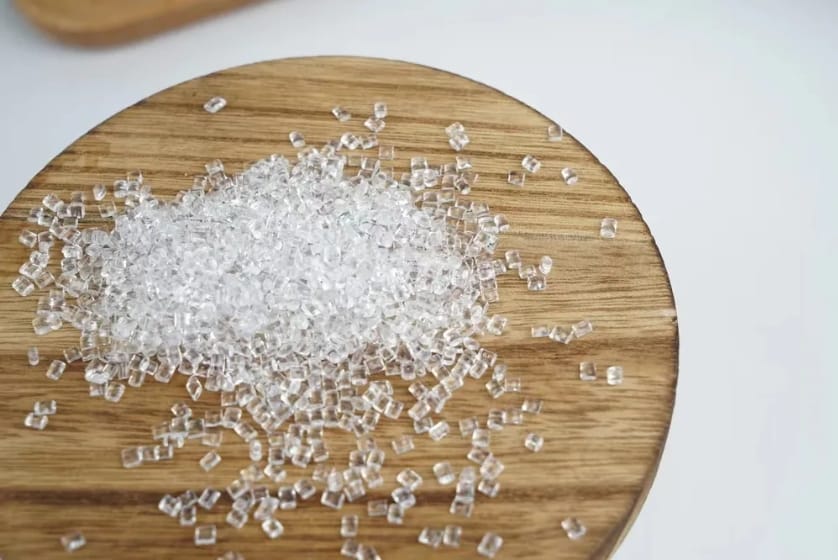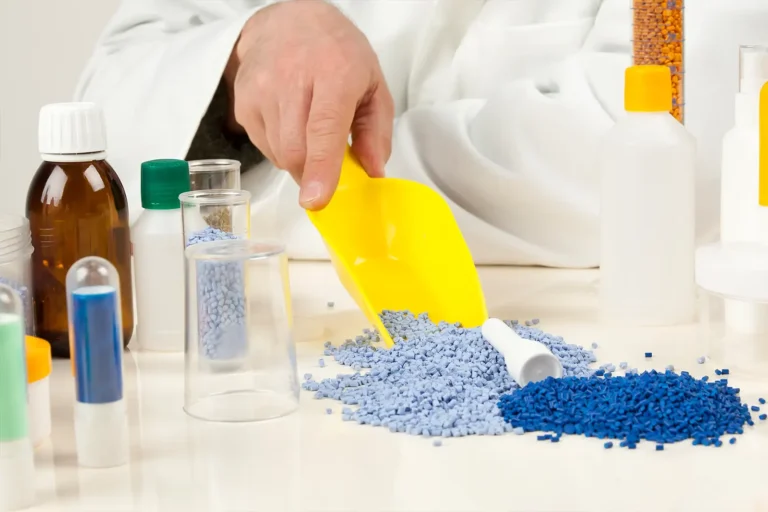Virgin PET resin and recycled PET flakes are two types of PET (polyethylene terephthalate) materials with different characteristics and advantages.
Virgin PET resin and recycled PET flakes are two types of PET (polyethylene terephthalate) materials with different characteristics and advantages. Virgin PET resin are made from freshly synthesized PET material through the polymerization of terephthalic acid (TPA) and ethylene glycol (EG). On the other hand, recycled PET resin are obtained through processes such as recycling, cleaning, cutting, and pelletizing of used PET products, such as plastic bottles and textiles. These two materials have differences in production processes, performance, application areas, economic benefits, and environmental aspects.
1. Features and benefits of both recycled and virgin PET resin
1) Production process: Virgin PET resin is typically produced by polymerization reaction of PTA and MEG. It has homogeneous chemical and physical properties and a stable quality. Its purity is high. Recycled PET resin, on the other hand, mostly comes from processed used PET bottles. The source of raw materials and the recycling process have an impact on the performance of recycled PET flakes, potentially lowering its quality. However, by including modifiers or additives, recycled PET flakes’ performance can be raised.
2) Performance: Virgin PET resin have excellent mechanical properties, chemical stability, thermal stability, bright colors, and good gloss. The performance of recycled PET resin may be slightly lower than that of original PET chips, with poorer color and gloss.
3) Production cost: The production equipment for virgin PET resin chips is advanced and highly automated, resulting in high production efficiency. However, the cost of raw materials is relatively high. Recycled PET resin may be processed using relatively simple equipment that uses more energy and has a lower production efficiency. Nonetheless, raw material costs are not too high.
4) Application areas: Virgin PET resin chips are extensively utilized in a wide range of plastic goods, including fibers, food packaging, and beverage bottles. Low-demand plastic items like trash cans and flower pots are usually made from recycled resin. Advances in technology have led to a growing prevalence of recycled PET application in certain industries, including electronic products and automotive parts.
5) Economic benefits: Although virgin PET resin chips have excellent performance, their high cost may impact the economic benefits of businesses further down the supply chain. Recycled PET resin have lower costs and price advantages but may have performance limitations in certain areas.
6) Environmental aspects: More energy and resources are used in the manufacture of the virgin PET resin chips. Nonetheless, by recycling and reusing the products, waste’s negative effects on the environment can be mitigated. Recycled PET resin contribute to resource recycling and environmental protection by lowering energy consumption and carbon emissions through recycling. Nevertheless, recycled PET’s comparatively poorer quality and performance might somewhat restrict its use.
1. Features and benefits of both recycled and virgin PET resin
1) Production process: Virgin PET resin is typically produced by polymerization reaction of PTA and MEG. It has homogeneous chemical and physical properties and a stable quality. Its purity is high. Recycled PET resin, on the other hand, mostly comes from processed used PET bottles. The source of raw materials and the recycling process have an impact on the performance of recycled PET flakes, potentially lowering its quality. However, by including modifiers or additives, recycled PET flakes’ performance can be raised.
2) Performance: Virgin PET resin have excellent mechanical properties, chemical stability, thermal stability, bright colors, and good gloss. The performance of recycled PET resin may be slightly lower than that of original PET chips, with poorer color and gloss.
3) Production cost: The production equipment for virgin PET resin chips is advanced and highly automated, resulting in high production efficiency. However, the cost of raw materials is relatively high. Recycled PET resin may be processed using relatively simple equipment that uses more energy and has a lower production efficiency. Nonetheless, raw material costs are not too high.
4) Application areas: Virgin PET resin chips are extensively utilized in a wide range of plastic goods, including fibers, food packaging, and beverage bottles. Low-demand plastic items like trash cans and flower pots are usually made from recycled resin. Advances in technology have led to a growing prevalence of recycled PET application in certain industries, including electronic products and automotive parts.
5) Economic benefits: Although virgin PET resin chips have excellent performance, their high cost may impact the economic benefits of businesses further down the supply chain. Recycled PET resin have lower costs and price advantages but may have performance limitations in certain areas.
6) Environmental aspects: More energy and resources are used in the manufacture of the virgin PET resin chips. Nonetheless, by recycling and reusing the products, waste’s negative effects on the environment can be mitigated. Recycled PET resin contribute to resource recycling and environmental protection by lowering energy consumption and carbon emissions through recycling. Nevertheless, recycled PET’s comparatively poorer quality and performance might somewhat restrict its use.



